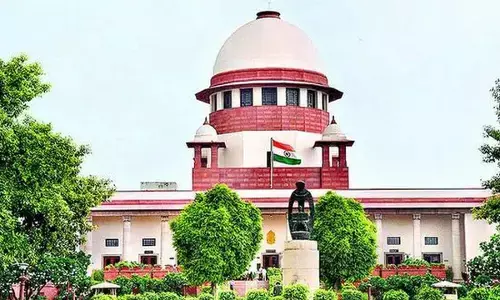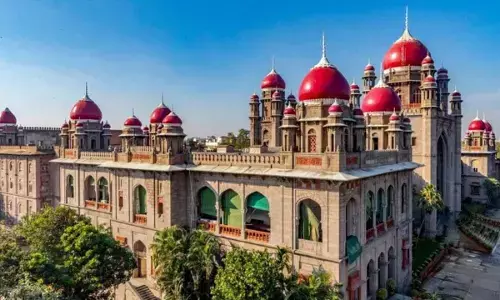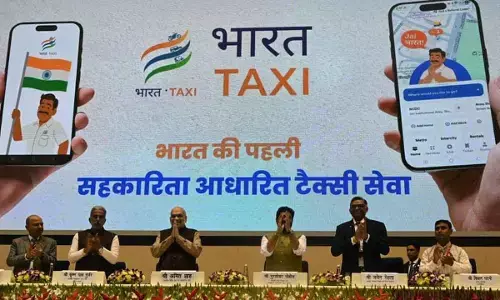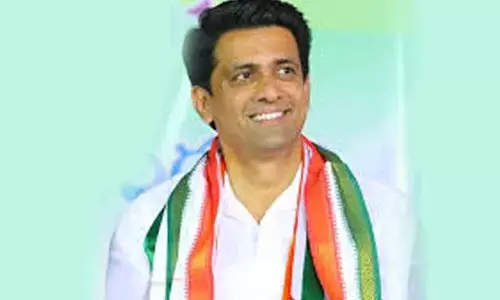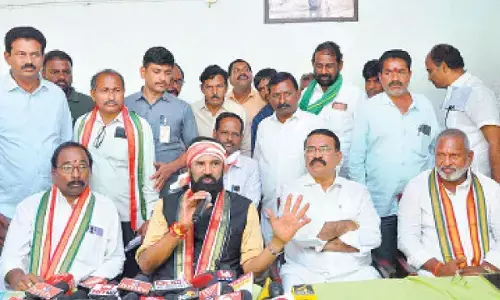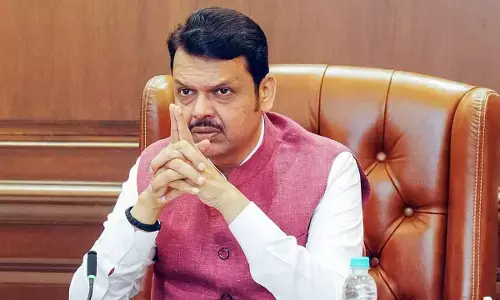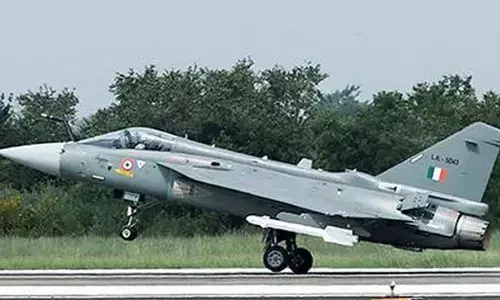Change in govts' mindset very vital
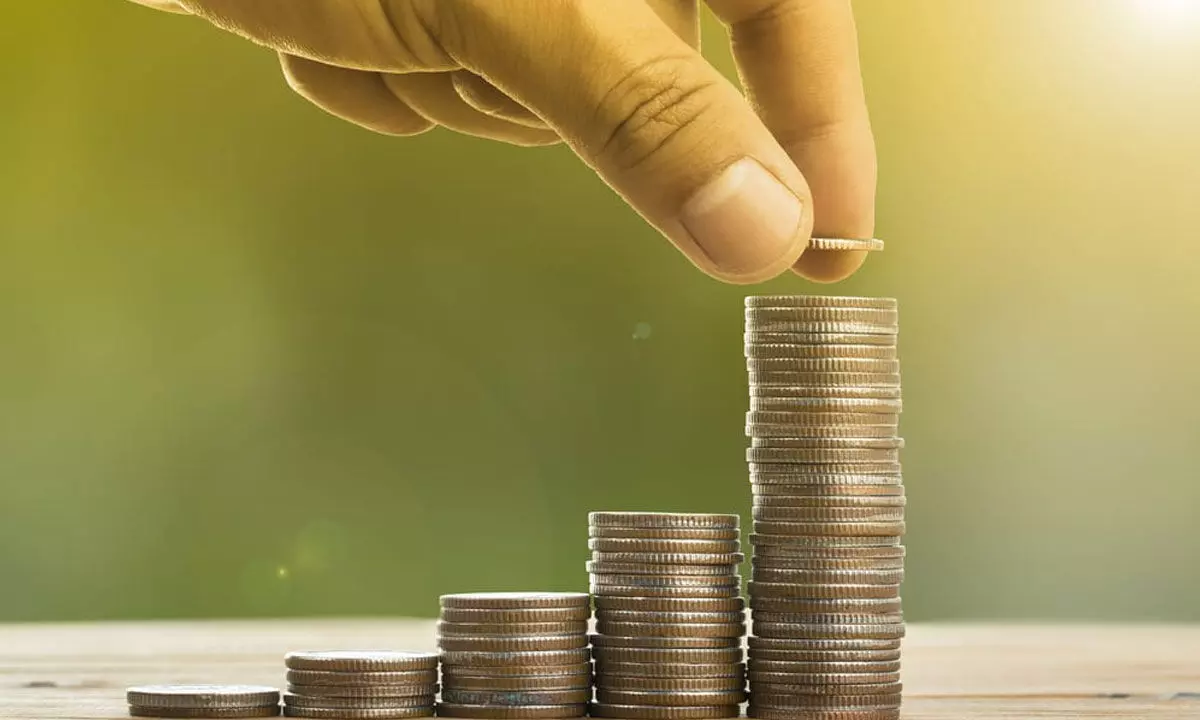
Change in govts’ mindset very vital
Can India really become a $5 trillion economy by 2024-25 as envisaged by Prime Minister Narendra Modi? Analysts say it seems unfeasible and the reasons they cite are Covid-19 pandemic and its lingering effects.
Can India really become a $5 trillion economy by 2024-25 as envisaged by Prime Minister Narendra Modi? Analysts say it seems unfeasible and the reasons they cite are Covid-19 pandemic and its lingering effects. It may not be possible till 2029-30, they feel. The Centre for Economics and Business Research (CEBR), a UK-based economic think tank, feels that despite Covid, India will become world's third largest economy by the end of the decade.
Some say that unless there is 9.2 per cent expansion this fiscal, it is not possible to recover from the adverse financial impact the country suffered during the last two years. For this, the growth must climb from Rs 222.9 lakh crore in FY22 (pegged in last year's Budget) to Rs 375 lakh crore in current prices – a 68 per cent increase in three years.
Well, the task may be difficult but not impossible, provided the political parties change their mindset and learn to take necessary measures to push the economy in that direction. Unfortunately, every state wants the centre to fund everything, and wants to take credit for everything. They refuse to think beyond narrow political gains.
Let's take an example. The Prime Minister in his recent video conference mentioned that some states including Telangana had not reduced VAT on petrol and diesel. The TS government, its Chief Minister K Chandrashekar Rao and party working president K T Rama Rao questioned why the state should reduce VAT when it had not increased it. Agreed, the state has not increased VAT. But still a government that claims to be people's government which fought for the formation of separate state and a party which knows the sufferings of the people are not ready to forego part of the revenue from VAT.
If governments view revenue generation as a shrewd businessman does, it would certainly explore various opportunities that are available to make the state earn revenue from other sectors while giving relief on petrol and petroleum products by one or two per cent. That they will not but will lash out at the centre, saying it has not given national project status to any irrigation project and will call it names like 'Golmal Sarkar' etc.
Let's be honest, when the state was bifurcated, the then UPA government in AP State Re-Organisation Act 2014 did not promise granting of national project to any project in Telangana. If the logic of VAT is applied here, why should the centre give national status which it had not promised? There would be no end to such arguments. What is important is that the state governments, whether it is Telangana, West Bengal, and Andhra Pradesh or for that matter any other state, should learn to be practical in approach.
Elections will come and go. No party is permanent. The Congress party which is considered to have deep roots had very long innings but now is in a state of getting decimated. If any party or leader thinks that they are there forever, it would be the biggest foolish thought. Politically, one may oppose the ruling party at the centre. But when it comes to economy, it should shun its ego as well as the thought that whatever is proposed in the central budget is wrong or that they have no brains. They should customise the proposals in the budget to the state requirements and take forward the economy. But most of the state chief ministers think that the centre is always wrong and only they are the epitome of intelligence. If this attitude does not change, the country will remain where it is even after next 10 years.
What the state governments lack is a proper vision and will power to explore their own resources which can rake in moolah. For that, they can make use of allocations from the Union Budget with matching grant or PPP mode and make each state strong.
For example, the two Telugu states are richly endowed with temples which have historical importance. There are many Shakti Peethams. They also have lovely fauna and flora, forests and water falls. But when it comes to infrastructure facilities and tourism promotion, they only talk but do nothing. Neither of the Telugu states is part of any travel circuit. AP minister calls herself as Tourist Minister not Tourism Minister.
Andhra Pradesh has about 975-km coastline with tremendous potential to develop sea tourism. But even places like RK Beach or Bhimli beach do not have adequate facilities. Erra Matti Dibbalu also called as Red Sand Hills, a notified National Geo-heritage Monument, is situated on the outskirts of Visakhapatnam city and located very near to the Bay of Bengal. One of Visakhapatnam's many heritage sites, it is vanishing. Had it been in any other country, it would have been converted into a major tourism spot.
One fails to understand how the state governments think that without laying emphasis on infrastructure sector they can generate revenue and how the youth would get employment. Every government claims that they have policies, but no one tries to review how practical they are. They need to sit with stakeholders and make them user-friendly not bureaucrat- friendly who are experts in making every issue a complicated one.
Instead of thinking that freebies would keep them glued to the seat of power, they should explore various possibilities for revenue generation. Let us take the recent example of how Telangana locked horns with the Centre over paddy purchase.
No serious efforts have been made either during the undivided Andhra Pradesh or now to explore the possibilities of export of rice and rice-based agri products. Nothing significant has been done to encourage agri-based industries. That would have helped the farmers more than extension of some financial dole or claims that only they could come up with most innovative ideas. If all states try and focus more and more on enhancing exports by having sustainable marketing policies, achieving $5 trillion can be achieved much faster.
State governments should become competitive not get bogged down by 'bhajan mandali.' Recently there were some occasions when police resolved some sensational murder case. Ministers, women's commission, party workers and even police went on to project that it was possible only because of the government. If police proves that it is as swift in solving other cases, too, people will themselves sing paeans of the administration.
Records indicate that the country had achieved exports to the tune of $420 billion in the last financial year. This means that there is an ample scope for higher exports. If all governments, central and state, stop thinking only about their electoral prospects and promote exports as much as possible, it can help not only in providing relief from the deficit the country recorded on account of COVID-19 but will also give a boost to the economy.
The need of the hour is not alternative economic theories. What is required is fine-tuning of existing policies and moving forward in unison. The political parties should realise they have a shelf life of 5 or maximum 10 years. Our politicians are known to promise something and do something else. They should learn to come up with implementable policies and user-friendly rules – not those which would give leeway to bureaucrats who like to see entrepreneurs run around them, and kill their enthusiasm.
State governments should learn to look towards encouraging start-ups. They should not simply say that there is a good policy and they would help entrepreneurs if they approach them. The biggest hurdle the entrepreneurs or investors face is in approaching the officials and getting their swift response.
The state governments can utilise the existing policy drivers like the 500 gigawatt (GW) green energy plan, production-linked incentive (PLI) manufacturing push, digital economy drive and targeted incentives for micro, small, and medium enterprises (MSMEs) to set the pace of growth. If they act so, it would be much easier to achieve the target of $ 5 trillion economy. For that they need a pure business-like mindset, and not bank on freebies for the sake of retaining power.
Make people competent enough and skilled enough to turn into entrepreneurs so that the economy can gallop. This will even solve the problem of huge unemployment to a great extent. Practical thinking and outlook is necessary. This appears to be a tall order as of now.
The centre, too, should review its policies of GST rates, slabs and ensure that there is a better and easy mechanism of compliance. What is required is prudent policy push. All governments should encourage more and more manufacturing, provide good quality infrastructure like roads, rail and logistic support. The country has a large coastline but very poor chain of logistics particularly in the area of shipping. If proper measures are taken in this direction, exports can go up.
Good roads, rail and logistics will lower the cost of doing business for firms and enable higher exports.
India is attracting foreign direct investment (FDI) at a faster pace which can be one of the redeeming factors for the domestic economy. The country has attracted FDI worth around $81 billion in the last financial year. All that is needed is will power to delink politics from economic growth. States should learn to become more self-sufficient than keeping looking towards the centre for everything, and learn to call a spade a spade and accept ground realities. The centre, too, should look at easing the norms, rules and procedures and should not think that they should be all-powerful. That is not true federalism. Let us pray once again "Sab ko Sanmati De Bhagwan."








